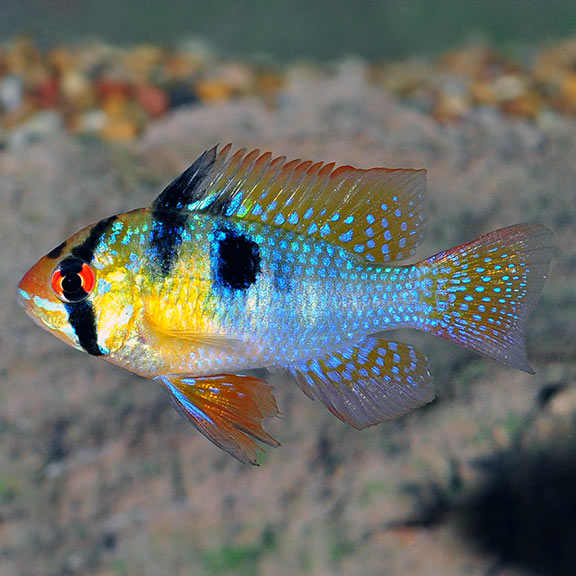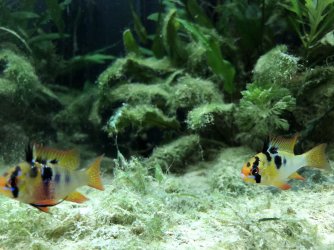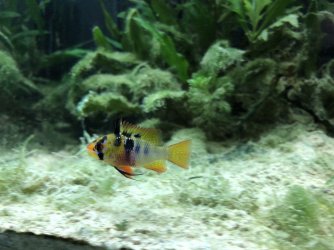Hello everyone,
This is my first post as me and my partner could not understand why this keeps happening.
We have a couple of Ram like this one:

And they constantly spawn. The first time they just ate their eggs but after that we've been having loads of fry for around 5 times. They really do eggs quickly after the previous fry has died and this is the problem.
The fry is usually very lively and swimming around with the parents. They protect them from other fish and carry them in their mouth to move them around and keep them in a group. We feed them liquifry and baby shrimp brine but after 3/4 days they are less in number and slow down.
Then when they're around 40 all of a sudden they disappear. All of them.
We are not sure if the parents eat them or what else, but we can't find bodies. This happens every single time and we are now frustrated as we've been trying to give them all they need.
What could be the problem, they always seems to stop at the same stage.
Thank you,
Saro
This is my first post as me and my partner could not understand why this keeps happening.
We have a couple of Ram like this one:

And they constantly spawn. The first time they just ate their eggs but after that we've been having loads of fry for around 5 times. They really do eggs quickly after the previous fry has died and this is the problem.
The fry is usually very lively and swimming around with the parents. They protect them from other fish and carry them in their mouth to move them around and keep them in a group. We feed them liquifry and baby shrimp brine but after 3/4 days they are less in number and slow down.
Then when they're around 40 all of a sudden they disappear. All of them.
We are not sure if the parents eat them or what else, but we can't find bodies. This happens every single time and we are now frustrated as we've been trying to give them all they need.
What could be the problem, they always seems to stop at the same stage.
Thank you,
Saro





